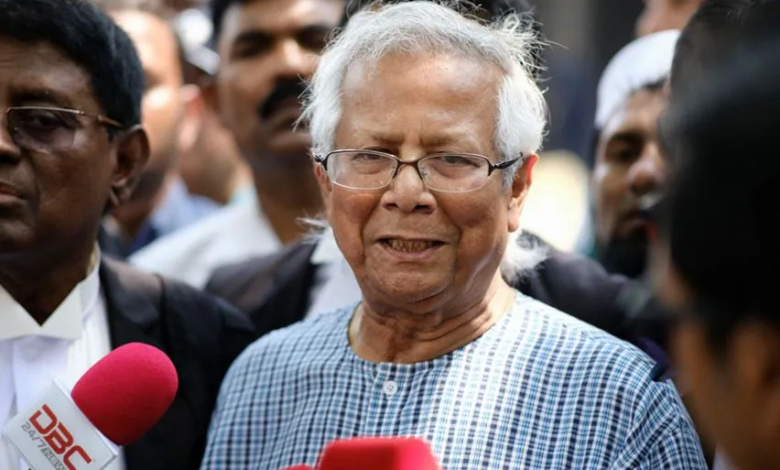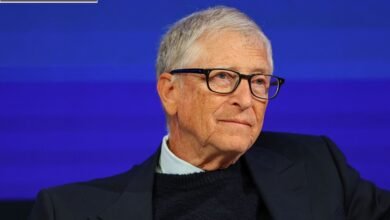Why Bangladesh Chose Muhammad Yunus as Interim Head Despite Tensions with Sheikh Hasina

News Mania Desk/Agnibeena Ghosh/7th August 2024
Bangladesh has appointed Nobel laureate Muhammad Yunus as the head of the country’s interim government, a decision made during a crucial meeting on the night of August 6. This choice comes amidst a tumultuous political climate and follows the removal of Prime Minister Sheikh Hasina, who fled the country amid violent protests. The meeting, led by President Mohammed Shahabuddin and attended by the heads of the armed forces and coordinators of the Anti-Discrimination Student Movement, aimed to address the leadership void left by Hasina’s departure.
Muhammad Yunus, widely celebrated for his innovative work in microfinance, steps into this role years after a significant and contentious fallout with Sheikh Hasina. In 2011, Hasina’s government dismissed Yunus from his position as head of Grameen Bank, a move that sparked widespread public outrage. The dismissal led to mass protests, with thousands of Bangladeshis forming human chains in defense of Yunus. Now, the banker who once clashed with Hasina is poised to lead the interim government.
The backdrop to this political upheaval includes prolonged unrest in Bangladesh, which erupted over a quota system in government jobs reserved for the families of those who fought for the nation’s independence in 1971. The protests, which turned violent, resulted in over 250 fatalities. Yunus, a well-known critic of Hasina, had long been at odds with the former prime minister. Given the scale of the protests and the evident dissatisfaction with Hasina, it is perhaps unsurprising that the activists advocating for change would propose one of Hasina’s most prominent critics as a solution.
On Tuesday, the Anti-Discrimination Student Movement, which had been vocal in its demands for change, strongly advocated for Yunus to lead the interim government. The movement’s leaders emphasized that they would not accept a government led by military figures or any perceived fascist elements, further highlighting the depth of their opposition to the previous administration.
Yunus’s journey began in 1969 when he earned his PhD in economics from Vanderbilt University as a Fulbright scholar. After teaching at Middle Tennessee State University, he returned to Bangladesh in 1972 to join the University of Chittagong’s Economics department. The devastating 1974 famine prompted Yunus to develop the microcredit model, which eventually led to the creation of Grameen Bank. This pioneering bank, which provides small loans without collateral, has profoundly impacted Bangladesh, reaching nearly 45 million people across 94% of the country’s villages. Yunus and the bank received the Nobel Peace Prize in 2006 for their contributions to alleviating poverty.
Despite his global acclaim, Yunus faced considerable challenges after his rise to prominence. In 2007, amid a caretaker military government in Bangladesh, he was associated with a potential political party, which led to further tensions with Hasina’s government. Although Yunus never established the party, his perceived political ambitions and subsequent legal issues further strained his relationship with Hasina.
In 2011, Hasina accused Yunus of mismanaging Grameen Bank and removed him from his position. Yunus has since faced numerous legal battles, including charges related to foreign currency violations and labor law breaches. Despite these ongoing issues, his international reputation remains largely positive. Last year, over 170 global figures, including former US Secretary of State Hillary Clinton, signed a petition calling for an end to what they described as the persecution of Yunus.
As Yunus steps into the role of interim leader, his appointment represents both a significant political shift and a chance for a new chapter in Bangladesh’s turbulent history.






